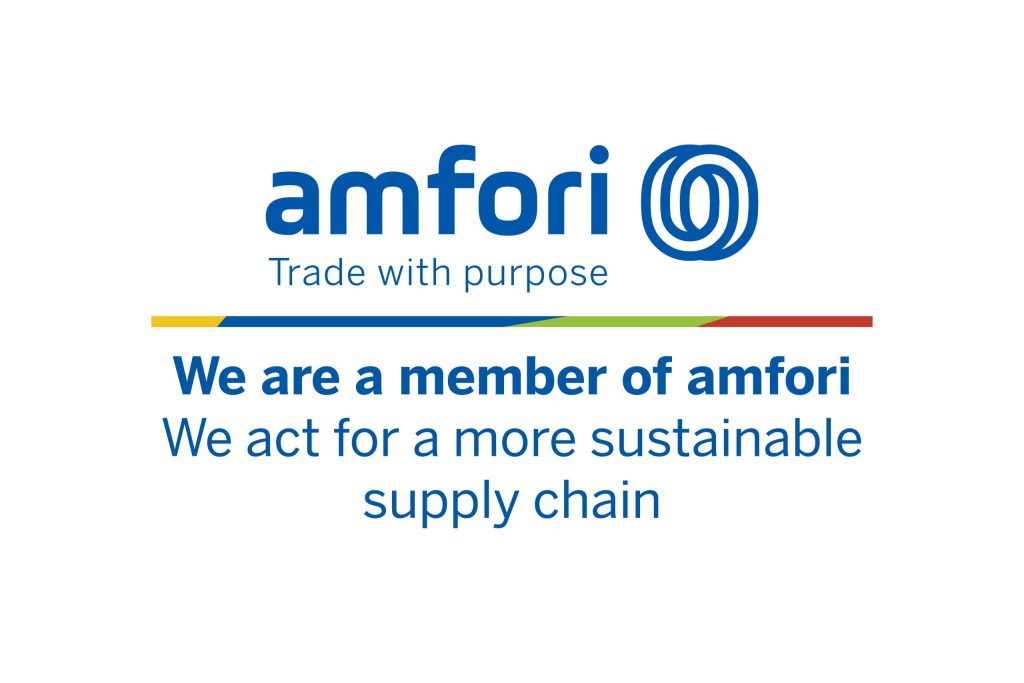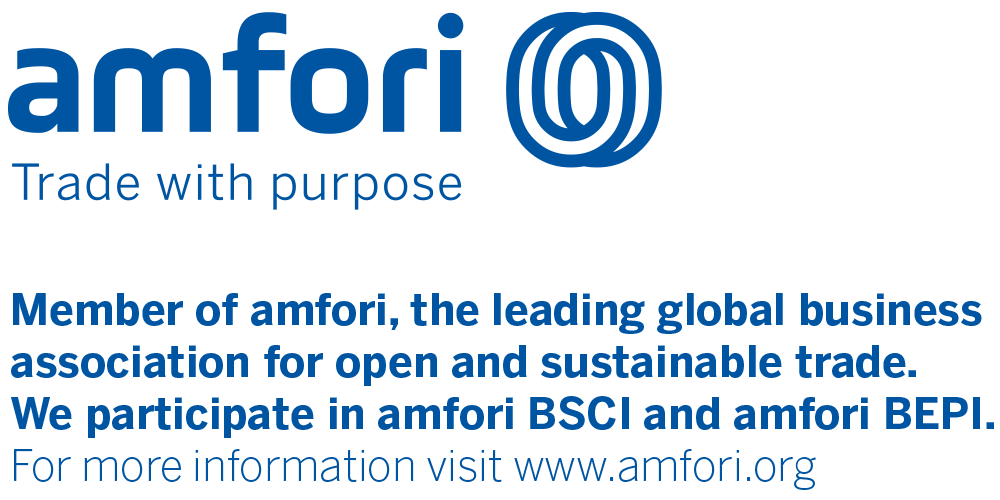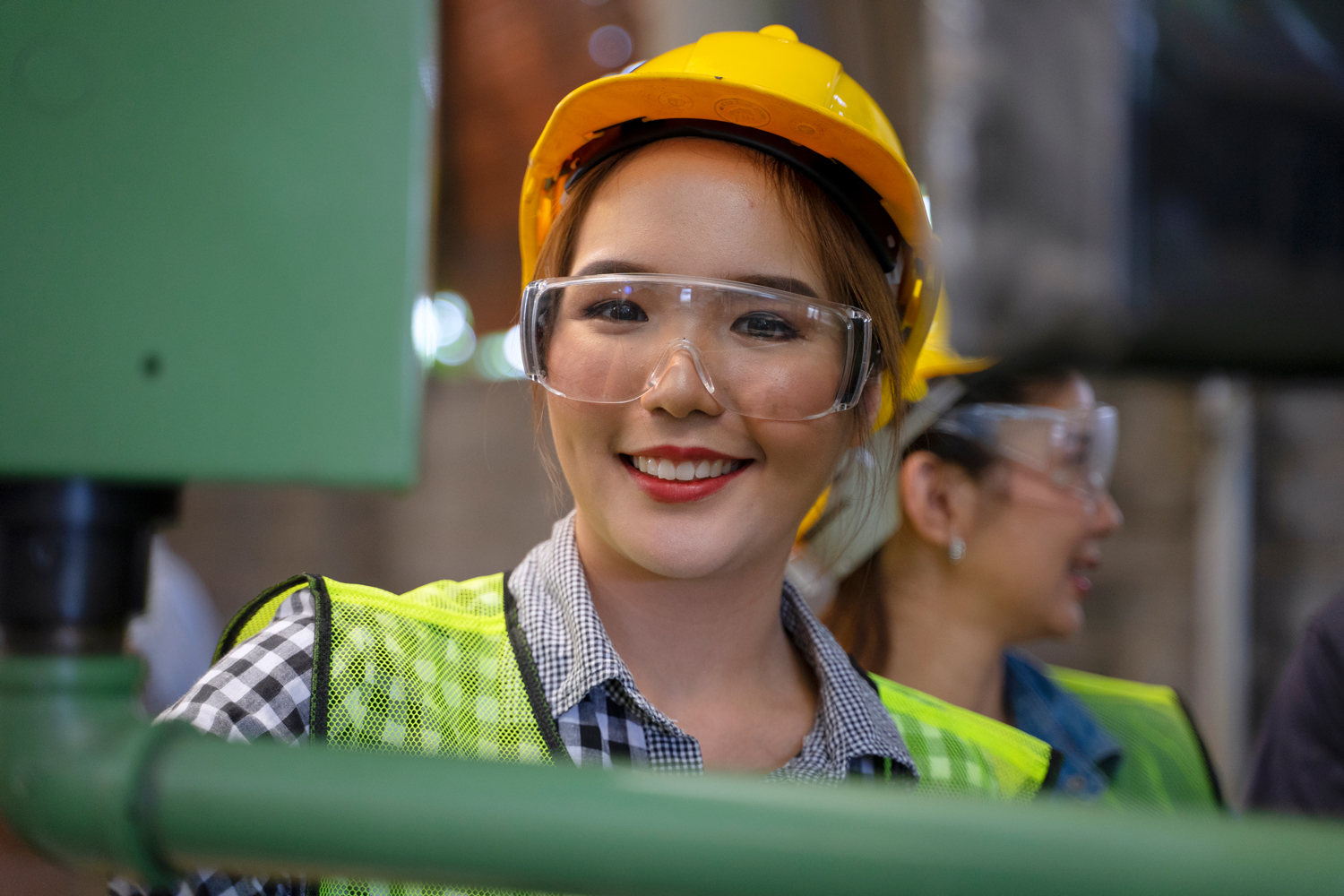HUMAN RIGHTS
AND WORKING CONDITIONS
IN OUR SUPPLY CHAINS
AND WORKING CONDITIONS
IN OUR SUPPLY CHAINS
Good working conditions and human rights are our key criteria when selecting supplier partners. We work systematically to ensure and improve these elements in our supply chain. We are a member of the Amfori network, the aim of which is to improve social performance in international supply chains and harmonize supplier monitoring.
AMFORI
The Amfori system is based on the UN’s and ILO’s conventions on human rights and working conditions, in addition to the local legislation depending on the location of the plant. We are committed to Amfori’s ethical principles, and we require the same commitment of all our suppliers. We monitor compliance with Amfor’s ethical principles through third-party factory audits.
Amfori is constantly developing its systems and offering e.g., assessment tools and training courses for us and our suppliers, in addition to the audit system. Amfori members include numerous companies from around the world, and all of them use the same audit results, operating models and tools. For suppliers, this means consistent and clear criteria for monitoring and developing working conditions. More information about Amfori.


AMFORI
The Amfori system is based on the UN’s and ILO’s conventions on human rights and working conditions, in addition to the local legislation depending on the location of the plant. We are committed to Amfori’s ethical principles, and we require the same commitment of all our suppliers. We monitor compliance with Amfor’s ethical principles through third-party factory audits.
Amfori is constantly developing its systems and offering e.g., assessment tools and training courses for us and our suppliers, in addition to the audit system. Amfori members include numerous companies from around the world, and all of them use the same audit results, operating models and tools. For suppliers, this means consistent and clear criteria for monitoring and developing working conditions. More information about Amfori.

PLANT AUDITS
When assessing the working conditions of our suppliers operating in higher-risk countries, we primarily use Amfori audits. The audits are carried out by an independent third party, and they include inspections of the plant’s working conditions and human rights status based on the Amfori audit criteria specified in the Code of Conduct.
During audits, various areas for improvement are usually discovered. However, serious defects, such as immediate health risks to employees, have been extremely rare among our suppliers. After the audit, we will analyze the audit results if necessary, help suppliers to make an improvement plan and remedy any defects. Our policy is to work with the supplier to find a solution to the problem in order to achieve lasting change. Our principle is that we will seek to solve problems together with the supplier to ensure permanent changes. We will follow up on the correction of defects during the next audit.
In addition to the Amfori audits, we also accept audits based on other social sustainability systems, provided that the criteria are the same as for the Amfori audits. Audits must be made by an independent third party, and the system must include a goal of continuously improving working conditions.
We require audits to take place at least every other year, depending on the audit system and the results of the previous audit. We focus on cooperating with suppliers who are committed to carrying out the audits at the required intervals. There may be occasional breaks in the audit validity due to a plant moving or being expanded, for example.


In addition to the Amfori audits, we also accept audits based on other social sustainability systems, provided that the criteria are the same as for the Amfori audits. Audits must be made by an independent third party, and the system must include a goal of continuously improving working conditions.
We require audits to take place at least every other year, depending on the audit system and the results of the previous audit. We focus on cooperating with suppliers who are committed to carrying out the audits at the required intervals. There may be occasional breaks in the audit validity due to a plant moving or being expanded, for example.
Our goal is to increase the number of audited plants in our supply chain. We inspect the audit data of production plants when choosing new products into our selection, and we constantly monitor the validity of the audits. We also support the suppliers in using the Amfori systems and share information about the training opportunities offered by the platform, for example.
